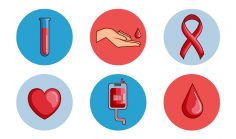There are prescription medications available that can control or cure most STDs.
HPV
While over-the-counter remedies for genital warts can be effective, these other remedies are generally recommended:
- Cryotherapy. The freezing off of the wart with liquid nitrogen
- Trichloracetic acid. A chemical applied to the surface of the wart that burns it off
- Surgical removal of a wart. The doctor excises the wart with a scalpel.
- Electrocautery. The burning off warts using an electric current
- Laser vaporization or excision of the warts
When treatment is indicated, patients can get a prescription cream from their doctor to apply at home. There are two options:
- Podofilox, or Condylox: generally used for 1 month and works by selectively destroying wart tissue. Research shows that 45-90% of warts are cleared, yet in 30-60% of cases, warts can return.
- Imiquimod, or Aldara: improves the immune system. Clearance of the warts vary from 70-85%, but may return up to 20% of the time.
HSV
Genital herpes may be managed, but not cured. Antiviral medicines may be prescribed to help relieve pain and discomfort during an outbreak by healing the sores more quickly.
Acyclovir, famciclovir, and valacyclovir (brand name Valtrex) are antiviral medicines used to treat genital herpes.. While all are effective valacyclovir and famciclovir are absorbed more easily by the stomach, and can be taken less often than acyclovir. Antiviral medicines are usually taken by mouth (orally). But they are sometimes given intravenously (IV) in severe genital herpes outbreaks or herpes in newborns.
There is a topical form of acyclovir (Zovirax ointment), but it offers little benefit in the treatment of genital herpes, and is not usually recommended. For repeat outbreaks, the medicine should be taken as soon as tingling, burning, or itching begins, or as soon as blisters appear. Persons who have many outbreaks may take these medicines daily over a period of time. This helps prevent outbreaks
Chlamydia
As Chlamydia is caused by a bacteria, it is best treated with antibiotics. As a result, chlamydial infections can often be cured..
If you are diagnosed with chlamydia, your doctor will prescribe oral antibiotics. A single dose of azithromycin or taking doxycycline twice daily for 7 to 14 days are the most common treatments
Trichomonniasis
Oral metronidazole cures trichomoniasis in 90% to 95% of cases—this medication is typically prescribed as a vaginal suppository.
Syphilis
With proper antibiotic treatment, which is traditionally penicillin, early syphilis infection can be cured without causing permanent damage. Those with penicillin allergies may be treated with other antibiotics, such as tetracycline. Although later stages of syphilis also respond to antibiotics, such as cephalosporins, like ceftriaxone, treatment will not repair any organ damage caused by the disease, which may be irreversible depending on the organ affected and severity of damage.
HIV
HIV cannot be cured, but treatment has come a long way, and is primarily focused on supporting white blood cell count (specifically CD4 fighter cells—which are a type of white blood cell that fights infection. Another name for them is T-helper cells.), which provide immunity. CD4 cells move throughout your body, helping to identify and destroy germs such as bacteria and viruses. The most effective treatment for HIV is antiretroviral therapy (ART), a combination of several medicines that aims to control the amount of virus in your body. Among the most commonly prescribed medications are:
- Nucleoside/nucleotide reverse transcriptase inhibitors, such asabacavir, emtricitabine, and tenofovir.
- Nonnucleoside reverse transcriptase inhibitors (NNRTIs), such asefavirenz, etravirine, and nevirapine.
- Protease inhibitors (PIs), such as atazanavir, darunavir, and ritonavir.
- Entry inhibitors, such as enfuvirtide and maraviroc.
- Integrase inhibitors, such as dolutegravir and raltegravir.











